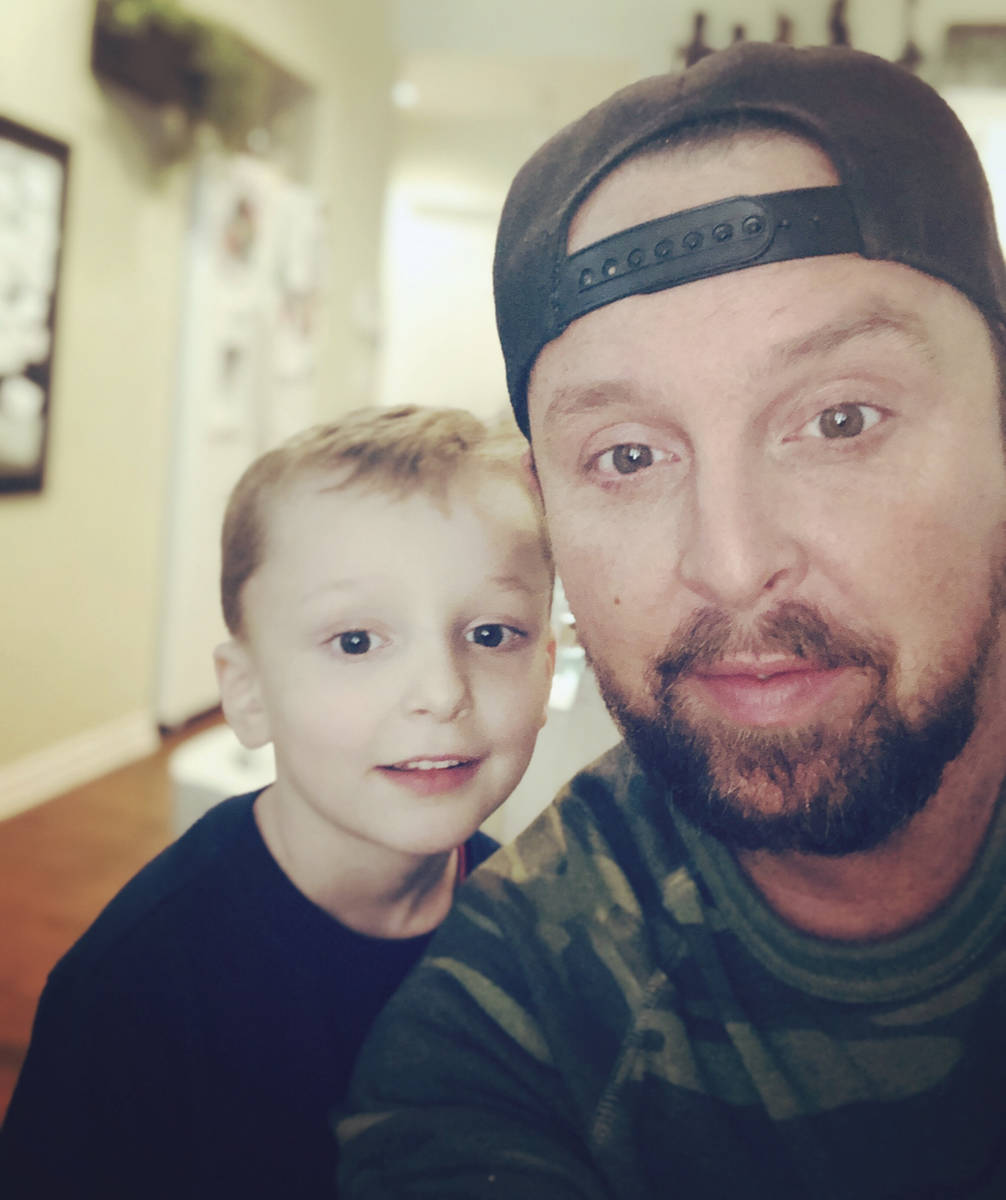Divorced parents try to find middle ground during pandemic
Local parents and their divorce attorneys are struggling to come up with compromises while following their court-ordered agreements in the age of COVID-19.
But lawyers say there’s no single solution for every parent, since every situation has its own unique set of circumstances.
“Some of my parents are being good,” said Holly Fic, a family attorney with Pecos Law Group, “but then you’ve got these parents that always want to fight.”
To complicate matters, the coronavirus pandemic has forced courts to cancel trials and cut back on hearings.
The American Academy of Matrimonial Lawyers released guidelines for parents with custody or support agreements: Follow court orders and custody agreements as far as possible, but be open to compromise when plans have to change.
“You have a court order, you have to follow it. But you always have to follow common sense and act in the best interest of the child,” Fic said.
In Nevada, parents who violate custody and child support orders can be held in contempt of court or charged with a felony, in some cases.
But the social and economic effects of COVID-19 have left many out of work or unable to leave their homes. Fic said some parents have no choice but to bend or break the rules laid out in their orders to protect their children.
“I don’t think they’re going to be penalized,” she said, “because this is something that’s unprecedented in the courts in our time.”
Custody exchanges
Nicole Benavidez has joint custody of her four children with two different fathers, only one of whom has been amenable to modifying their agreement. Benavidez also has lupus, an autoimmune disease, making her more vulnerable to the new virus.
“I had to make the decision to leave the kids with their father,” she said of her eldest three, a 12-year-old girl and 7- and 10-year-old boys.
She explained that their dad is an essential worker who can’t always follow social distancing guidelines, so she’s taking care of her children by protecting her own health.
“Obviously, I’ll be useless when I’m stuck in the hospital and can’t take care of my kids,” Benavidez said.
But in some cases, parents have refused to allow visits or custody exchanges without reasonable cause, said Rock Rocheleau of RIGHT Lawyers. But with nonessential court hearings delayed because of the pandemic, there isn’t much that can be done.
“You’ve got to kind of suck it up and accept it,” he said.
Family law attorney and state Sen. Keith Pickard, R-Henderson, said there is a presumption in Gov. Steve Sisolak’s stay-at-home directive that members of multiple households should be able to move between and mingle within all of them.
“Well, that applies to kids, too,” Pickard said. “So the kids should be exchanged no matter what, as long as it is safe for the child.”
Pickard has sponsored or worked on several bills that adjust or clarify existing child custody laws and said he’s working on a future bill that will address custody exchanges under extreme circumstances, like the coronavirus pandemic.
“Just because something is happening in the world doesn’t mean you can deny access to a child,” he said.
He said individual exceptions, such as parents like Benavidez with immune deficiencies, will always need to be handled individually.
In the case of her youngest child, a 2-year-old boy, Benavidez said she’s unable to make any agreements with the father without their attorneys mediating. So for now, they’re following the usual schedule, which requires several public exchanges a week.
As soon as she gets her son home, she strips him down to his diaper, washes him and dresses him in clothes from her home.
“It puts me in a paranoid state, not knowing who he was exposed to with his dad,” Benavidez said.
Fic said she’s also had cases where a child says someone in a parent’s home is sick, and the other parent doesn’t want the child to stay there or is concerned the child has been exposed.
She recommends that the sick person be tested for the coronavirus, if possible.
“I’m sure a lot of litigation is going to come from these parents, but I’m not sure what police or the courts are going to be able to do,” she said. “So you’re in a Catch-22-style situation.”
Child support
Amid layoffs, lost hours and furloughs, attorneys say many of their clients have found themselves unsure if they’ll be able to pay rent and bills next month, much less their child or spousal support payments.
“I got the divorce finalized and within a month went from doing better than ever to being out of work,” said Justin Carder, a local musician who agreed in February to pay his ex-wife $2,200 a month in child and spousal support.
“It’s a scary thing,” said Carder, who also has custody of his 7-year-old son on weekends. “I may be able to pay everything on the first, but after that?”
Once a child support order is in place, it can be modified in court only if the paying parent’s income goes up or down by 20 percent or every three years, Rocheleau said.
“But is it a temporary layoff? That’s really been the discussion we’ve been seeing with our clients,” the attorney said. “And what if by the time the courts open and you have your hearing, you’re already working again?”
Pickard said any income changes or modifications to child support agreements should be filed in court immediately, regardless of circumstance.
Carder was denied unemployment benefits, so he said he’s doing everything he can to earn enough to cover everything, including performing live “quarantunes” gigs online.
But even if he had a break from making the payments, Carder worries that a temporary “freeze” would leave him with missed payments to make up later while still trying to get back on his feet.
“If I was just having to fend for myself, that would be different,” he said. “But I have a 7-year-old son, and I have an agreement that I signed off on and the judge signed off.”
Modifying agreements
Carder said he can’t afford to pay an attorney to help with filing, so he’s struggling to work out an agreement with his ex-wife before May’s payments are due.
“Some days it’s ‘we’ll cross that bridge when you get there,’ ” Carder said, “and some it’s ‘get me my money or else.’ ”
Rocheleau said parents should make sure the agreement is in writing, even if it’s over text or email.
“You can make an agreement outside the courts, and in the eyes of Family Court that’s legally binding,” he said.
Rocheleau recommended using a child support calculator, many of which can be found online, to come up with a fair payment amount depending on each parent’s current income.
The Nevada Supreme Court also has the formulas to calculate payments online, including a separate table for parents who make less than $1,595 a month.
Rocheleau said he’s been trying to work with attorneys for other parties to settle disagreements without requiring court hearings.
“In extreme cases, at least file a motion, even if it won’t be heard until May,” he said. “It might put some pressure on that other parent.”
It’s possible for parents to represent themselves and file their own motions in Family Court, but attorneys may be necessary in complicated or contentious cases.
The Family Law Self-Help Center has all the information and documents parents need to file and respond to motions themselves, and it is still offering help via phone and email during the coronavirus pandemic.
Carder recommends that parents having trouble with child support payments reach out to the other parent and ask for grace.
“If you don’t get grace, you’d better have money to pay your attorney,” Carder said, “because that’s what it’s going to have to take with all this going on.”
Fic said parents who keep extended custody of their children during the pandemic should be generous about giving the other parent makeup time, like in Benavidez’s case.
Benavidez said her oldest daughter FaceTimes and texts daily, and the kids’ father FaceTimes her with the two younger boys every few nights. She said they explained the situation to them before the change so they understood why it was happening.
“Make the decision that in the long run is best for your kids,” she said. “And that might mean being what I call ‘selflessly selfish.’ ”
Contact Max Michor at mmichor@reviewjournal.com or 702-383-0365. Follow @MaxMichor on Twitter.






























